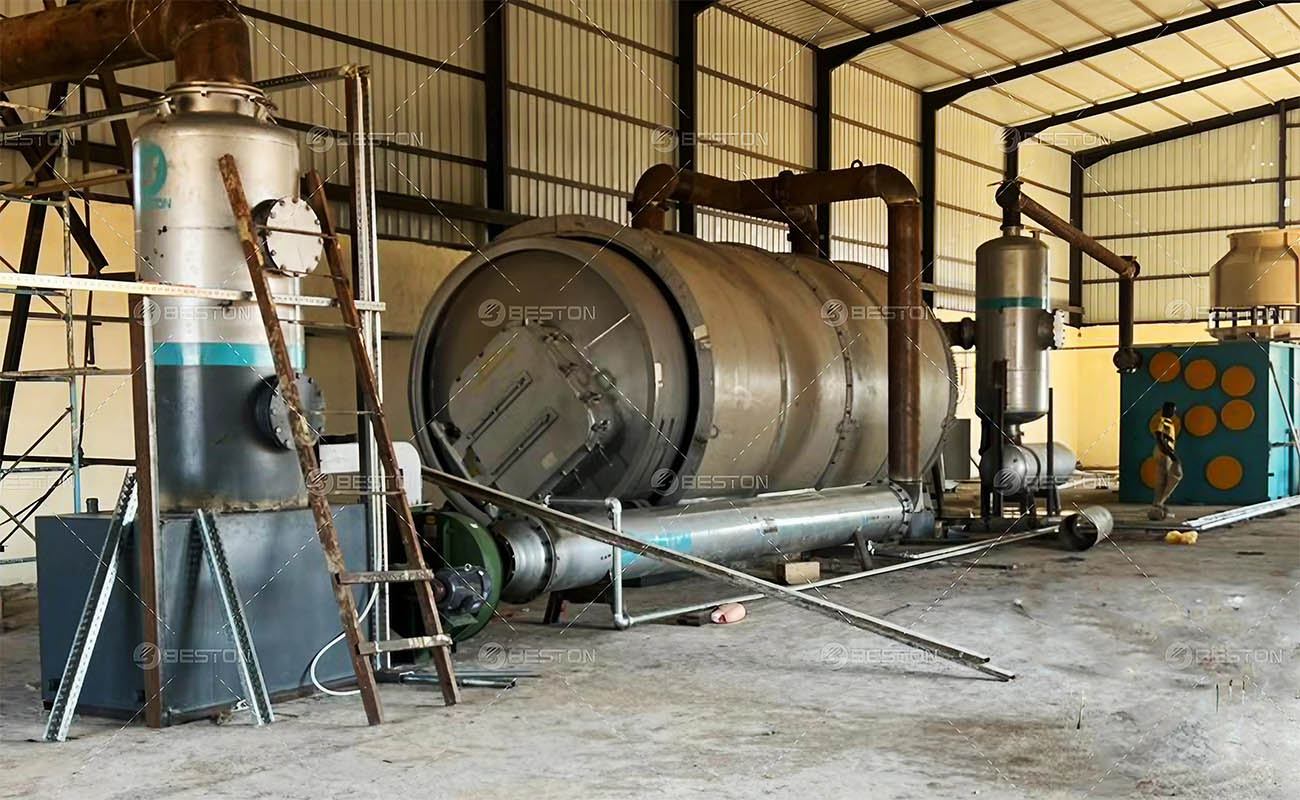In the evolving landscape of sustainable technologies, the concept of a mobile pyrolysis unit has emerged as a game-changer, particularly for small-scale enterprises aiming to harness the potential of pyrolysis oil production. This innovative solution combines flexibility and efficiency, catering to the unique challenges faced by businesses operating on a smaller scale.
Understanding the Mobile Pyrolysis Unit
Pyrolysis Unleashed
Pyrolysis, at its core, involves the thermal decomposition of organic materials in the absence of oxygen, leading to the creation of valuable byproducts like bio-oil, syngas, and biochar. The brilliance of a mobile pyrolysis unit lies in its ability to bring this transformative process directly to the source of organic waste, mitigating logistical challenges.
The Mobility Advantage
Unlike conventional fixed pyrolysis plants, a mobile pyrolysis unit is compact, transportable, and designed for on-site operation. This mobility eliminates the need for transporting bulky waste to a distant processing facility, reducing associated costs and environmental impact.
Operational Dynamics
1. Compact Design and Portability
The mobile pyrolysis unit boasts a compact design, integrating advanced pyrolysis technology into a portable framework. This design facilitates easy transportation to diverse locations, allowing businesses to adapt swiftly to changing waste disposal needs.
2. On-Site Processing Efficiency
By situating the pyrolysis process at the waste generation site, the mobile pyrolysis unit minimizes transportation-related energy consumption. This on-site efficiency not only streamlines operations but also enhances the overall sustainability quotient of the process.
3. Feedstock Flexibility
One of the distinguishing features of a mobile pyrolysis unit is its adaptability to various feedstocks. From agricultural residues and forestry waste to plastic and rubber, the unit can efficiently process a spectrum of materials, providing businesses with versatile waste management options.

Economic Viability
1. Cost-Effective Implementation
For small-scale businesses with limited resources, the cost-effective nature of a mobile pyrolysis unit stands out. The reduced infrastructure requirements, coupled with on-site operation, contribute to a favorable economic equation for businesses aiming to venture into pyrolysis oil production.
2. Revenue Generation from Byproducts
In addition to pyrolysis oil, the unit yields valuable byproducts such as biochar and syngas. These can be monetized or utilized for on-site energy generation, presenting additional revenue streams for businesses investing in a mobile pyrolysis unit.
Environmental Impact
1. Localized Waste Management
By decentralizing the pyrolysis process, a small scale pyrolysis equipment plays a crucial role in localized waste management. This not only reduces the carbon footprint associated with waste transportation but also curtails the environmental burden of large-scale processing facilities.
2. Emission Reduction
The design of mobile units often incorporates advanced emission control technologies. This ensures that the pyrolysis process is environmentally responsible, contributing to the reduction of harmful emissions associated with waste decomposition.
Overcoming Challenges
1. Technical Advancements
Continuous advancements in pyrolysis technology enhance the efficiency and reliability of mobile pyrolysis units. Innovations such as improved catalysts and control systems contribute to overcoming technical challenges, making these units increasingly dependable.
2. Regulatory Compliance
Navigating regulatory frameworks can be a challenge for any waste management initiative. However, the modular and adaptable nature of mobile pyrolysis units facilitates compliance with diverse regulations, ensuring a seamless integration into different operational landscapes.
Future Outlook
The concept of a mobile pyrolysis unit is gaining traction globally, with increasing recognition of its potential in addressing the waste management needs of small-scale operations. As technology continues to evolve, these units are poised to become even more efficient, affordable, and environmentally friendly, offering a sustainable solution for decentralized pyrolysis oil production.
Conclusion
In the realm of small-scale pyrolysis oil production, the mobile pyrolysis unit stands as a beacon of innovation. Its compact design, on-site processing efficiency, and economic viability make it a compelling choice for businesses seeking sustainable waste management solutions. As the world focuses on decentralized and environmentally conscious practices, the mobile pyrolysis unit emerges as a pivotal player in reshaping the landscape of pyrolysis technology.

Comments
No comments yet. Be the first to react!